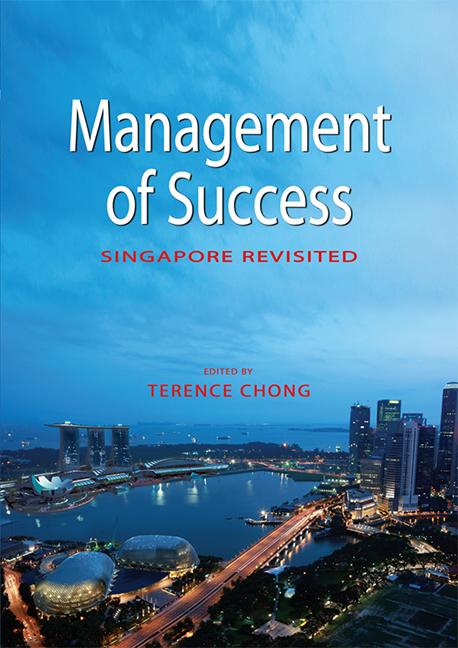Book contents
- Frontmatter
- Contents
- List of Tables and Figures
- Foreword
- Message
- Quote
- Preface
- The Contributors
- 1 Introduction: The Role of Success in Singapore's National Identity
- SECTION 1 SINGAPORE IN THE BIGGER PICTURE
- SECTION 2 LEADERSHIP, POLICY AND POLITICS
- 4 PM Lee Hsien Loong and the “Third Generation” Leadership: Managing Key Nation-building Challenges
- 5 Political Consolidation in Singapore: Connecting the Party, the Government and the Expanding State
- 6 The Evolving Social Compact and the Transformation of Singapore: Going Beyond Quid Pro Quo in Governance
- 7 The Ardour of Tokens: Opposition Parties’ Struggle to Make a Difference
- SECTION 3 THE RESTRUCTURING OF THE ECONOMY
- SECTION 4 THE TRANSFORMATION OF SOCIETY
- SECTION 5 THE LAW
- SECTION 6 MODIFICATION OF THE ENVIRONMENT
- SECTION 7 COMMUNITY AND NATIONAL SECURITY
- SECTION 8 LIFE IN SINGAPORE
- Index
4 - PM Lee Hsien Loong and the “Third Generation” Leadership: Managing Key Nation-building Challenges
from SECTION 2 - LEADERSHIP, POLICY AND POLITICS
Published online by Cambridge University Press: 21 October 2015
- Frontmatter
- Contents
- List of Tables and Figures
- Foreword
- Message
- Quote
- Preface
- The Contributors
- 1 Introduction: The Role of Success in Singapore's National Identity
- SECTION 1 SINGAPORE IN THE BIGGER PICTURE
- SECTION 2 LEADERSHIP, POLICY AND POLITICS
- 4 PM Lee Hsien Loong and the “Third Generation” Leadership: Managing Key Nation-building Challenges
- 5 Political Consolidation in Singapore: Connecting the Party, the Government and the Expanding State
- 6 The Evolving Social Compact and the Transformation of Singapore: Going Beyond Quid Pro Quo in Governance
- 7 The Ardour of Tokens: Opposition Parties’ Struggle to Make a Difference
- SECTION 3 THE RESTRUCTURING OF THE ECONOMY
- SECTION 4 THE TRANSFORMATION OF SOCIETY
- SECTION 5 THE LAW
- SECTION 6 MODIFICATION OF THE ENVIRONMENT
- SECTION 7 COMMUNITY AND NATIONAL SECURITY
- SECTION 8 LIFE IN SINGAPORE
- Index
Summary
SURVIVING THE CHALLENGES
In his first National Day Rally Speech in August 2004, Prime Minister (PM) Lee Hsien Loong stated: “We may be small, but we have high hopes and big dreams and so long as we are a little red dot in the middle of Southeast Asia, let people know that we are a people who will keep on trying and never say die. And with this spirit, the future is ours to make.” In 2007, he applauded the Singaporean sailors who performed well at the Asian Games in Doha for their determination, strong will, and tenacious spirit. These sentiments not only illustrate the vision of the man at the helm of the republic's national leadership, but also demonstrate his “cando, never say die” personality in battling the odds, however Herculean they may be. This is a characteristic of someone who had battled with lymphoma in 1992 and overcame it. Like the victorious Singaporean sailors, Lee Hsien Loong then sailed forth to receive the baton from his predecessor, Goh Chok Tong, on 12 August 2004.
In his first term as Prime Minister he led his team to implement important domestic and foreign policies, aiming to keep Singapore sailing through difficult waters — waters that are now pushed further and faster by the winds of globalization. Thus far, he and his team have done well as Singapore continues to chart progress in many fields. However, in striving towards a future growth formula, officially coined as “World.Singapore”, his team will face challenges that are no less exacting than those that confronted his predecessors. Arguably, many of these challenges are a consequence of Singapore's embrace of globalization — from which arises some critical nationbuilding issues that require a new type of leadership acumen. In the 1989 volume, Management of Success, when laying out the possible challenges facing Goh Chok Tong's second generation leaders, Robert O. Tilman noted that “much of their future will depend on forces over which they have little or no control. Singapore can prosper only so long as the major market economies are also healthy, and a prolonged global economic downturn could present the new leadership with perhaps insurmountable political problems at home.”
- Type
- Chapter
- Information
- Management of SuccessSingapore Revisited, pp. 51 - 66Publisher: ISEAS–Yusof Ishak InstitutePrint publication year: 2010

